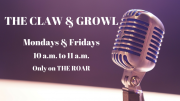Caroline Lozano/ Contributing Writer
I have a younger sister named Stephanie. She’s a bit shy at first, but once she opens up, she’ll tell you all about her favorite shows on Netflix and her love for the DC supervillain, Harley Quinn.
She was diagnosed with autism at the age of four, and while many sacrifices were made so my sister could have the life she has now, she has never been a burden to our family.
Through their words and actions, Autism Speaks says otherwise.
Autism Speaks is the largest autism advocacy organization in the United States. It raises millions of dollars annually by hosting walks and other fundraising events. A variety of celebrities such as Yoko Ono, who was named their global ambassador in 2010, have also offered their well-intentioned support for the charity.
At first glance, it seemed like a promising group that was actually doing what was being advocated. During my first autism awareness walk a few years ago, thousands of people participated and numerous tables were set up for anyone who needed help. There was lively music and a good atmosphere all around.
I was ecstatic because I thought people with autism finally had someone who was looking out for them, a powerful organization, no less.
Unfortunately, that joy went out the window as soon as I did my research.
What’s laughable is that on their website, it stated that they’re dedicated to “increasing understanding and acceptance of autism spectrum disorders.”
Their co-founder, Suzanne Wright, has referred to children on the spectrum as “lost” or “missing” on several occasions, making autism appear as though it were a silent abductor.
Autism Speaks is also responsible for a video called “I Am Autism” where the disorder is personified as a stalker. Lines such as “I work faster than pediatric AIDS, cancer, and diabetes combined” and “I will make sure your marriage fails” are spoken throughout the advertisement in an eerie voice.
Another video they produced is called “Autism Every Day,” which has a member of their board talking about how she contemplated driving off the George Washington Bridge with her daughter in a murder-suicide. It also features exhausted parents complaining about how difficult it is to care for children with autism while said child is right in front of them, listening to everything they are saying.
These actions strike fear into parents with diagnosed children and reinforces the idea that the disorder is the worst thing that will ever happen to an individual.
Although the organization added two members on the autism spectrum last year, it is still predominantly made up of non-autistic individuals. Try to imagine the NAACP with an all-white board or a LGBT+ organization with only heterosexual members.
Whenever a person with autism has openly disagreed with them, Autism Speaks has made attempts to silence them.
For example, according to Daily Kos on January 2008, a teenager with autism created a parody website of the Autism Speaks’ site “as shown from an alternate perspective.” Basically, it focused on how neurotypicals —non-autistic people — were the ones with a severe disorder rather than those on the autism spectrum.
Needless to say, Autism Speaks did not take this very well, citing legal action if the site was not taken down.
In response to the demands from Autism Speaks, the teenager took the site down. However, the concept was later revived by users of different online messaging forums who created their own parody of the Autism Speaks website.
In short, Autism Speaks is not a voice for the ones they claim to be advocating. Rather than perpetuating stereotypes and making it harder for people with autism to be heard, the organization should direct their focus on disseminating stigmas surrounding the disorder so that these individuals can advance in life.
DISCLAIMER:
The opinions presented within this page do not represent the views of Panther Press Editorial Board. These views are separate from editorials and reflect individual perspectives of contributing writers and/or members of the University community.
Photo taken from Flickr.






Be the first to comment on "Autism Speaks is not a voice for people with autism"